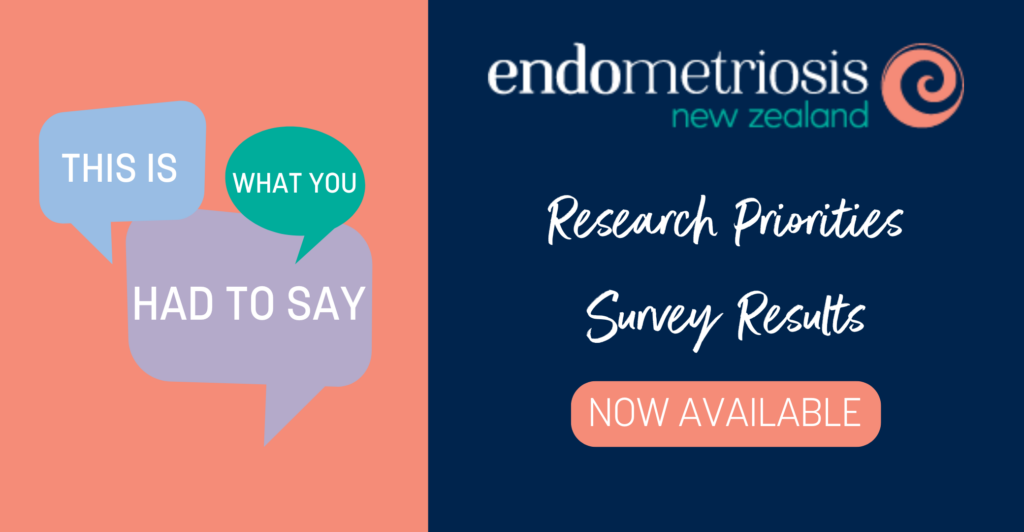
Endometriosis New Zealand partnered with a research team based at the University of Canterbury | Te Whare Wānanga o Waitaha to gain insight into the perspectives of endometriosis patients, their friends, and whānau.
This was the largest survey ever of endometriosis patients in Aotearoa New Zealand with over 1000 participants!
The results showed that endometriosis research should focus on improved management, faster diagnosis, and understanding the cause of endometriosis – all to work towards a cure. Huge thanks go out to our community for participating in this research and having your voices heard!
One of the core findings was that the average delay to diagnosis for New Zealand patients is almost a decade as 9.7 years.
This is an increase from 8.7 years that was previously reported in 2022.
You can now see the full results of our recent survey where 1000 individuals shared their experience with us and we heard that the delay to diagnosis in New Zealand is increasing.
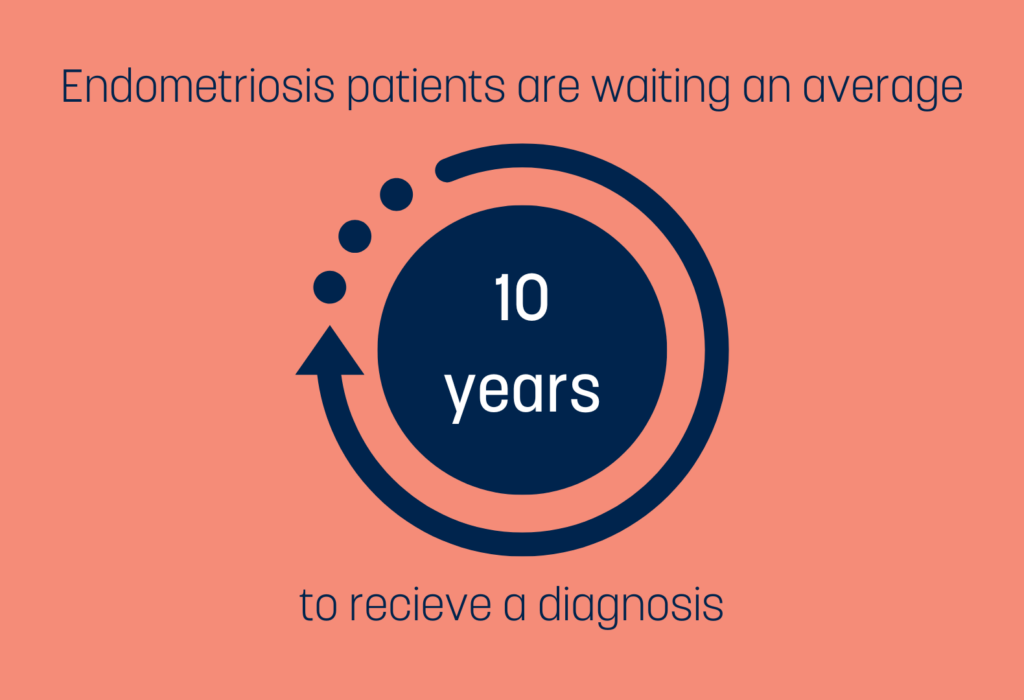
Endometriosis New Zealand would like to acknowledge the support from Endometriosis Australia to guide the structure from their Research Fund. The Endometriosis New Zealand Research Priorities Survey questions are based on the 2023 Australian survey published in ANZJOG by Armour et al.
Endometriosis is a complex and poorly understood condition despite it affecting at least 1 in 10 women, girls and those assigned female at birth in New Zealand. Many of these individuals are faced with overwhelming challenges.
Research into endometriosis is vital to develop new methods to diagnose and treat the condition to improve the lives of patients and reduce the impact of the disease.
Endometriosis New Zealand is working to progress vital endometriosis research in New Zealand with the aim of enhancing understanding of endometriosis. Our work will be based on the priorities of endometriosis patients and their family/whānau and supporters utilising research conducted in 2023.
We will update this page regularly with the latest developments. You can join our database or follow our social media for regular updates.
Endometriosis New Zealand is partnering with a research team based at the University of Canterbury to gain insight into the perspectives of endometriosis patients, their friends, and whānau. This will be conducted through a survey that aims to identify what the priorities are for endometriosis research.
The findings of this study will be used in the development of the Endometriosis New Zealand Research Fund, due to be launched in 2024.
This research project is being conducted by the University of Canterbury | Te Whare Wānanga o Waitaha and Endometriosis New Zealand. This study is being run by Katherine Ellis from the University of Canterbury, and Endometriosis New Zealand. Other research team members include Dr Rachael Wood from the University of Canterbury.
This survey is now closed for analysis.
Endometriosis New Zealand would like to acknowledge the support from Endometriosis Australia to guide the structure of this fund. The Endometriosis New Zealand Research Priorities Survey questions are based on the 2023 Australian survey published in ANZJOG by Armour et al.
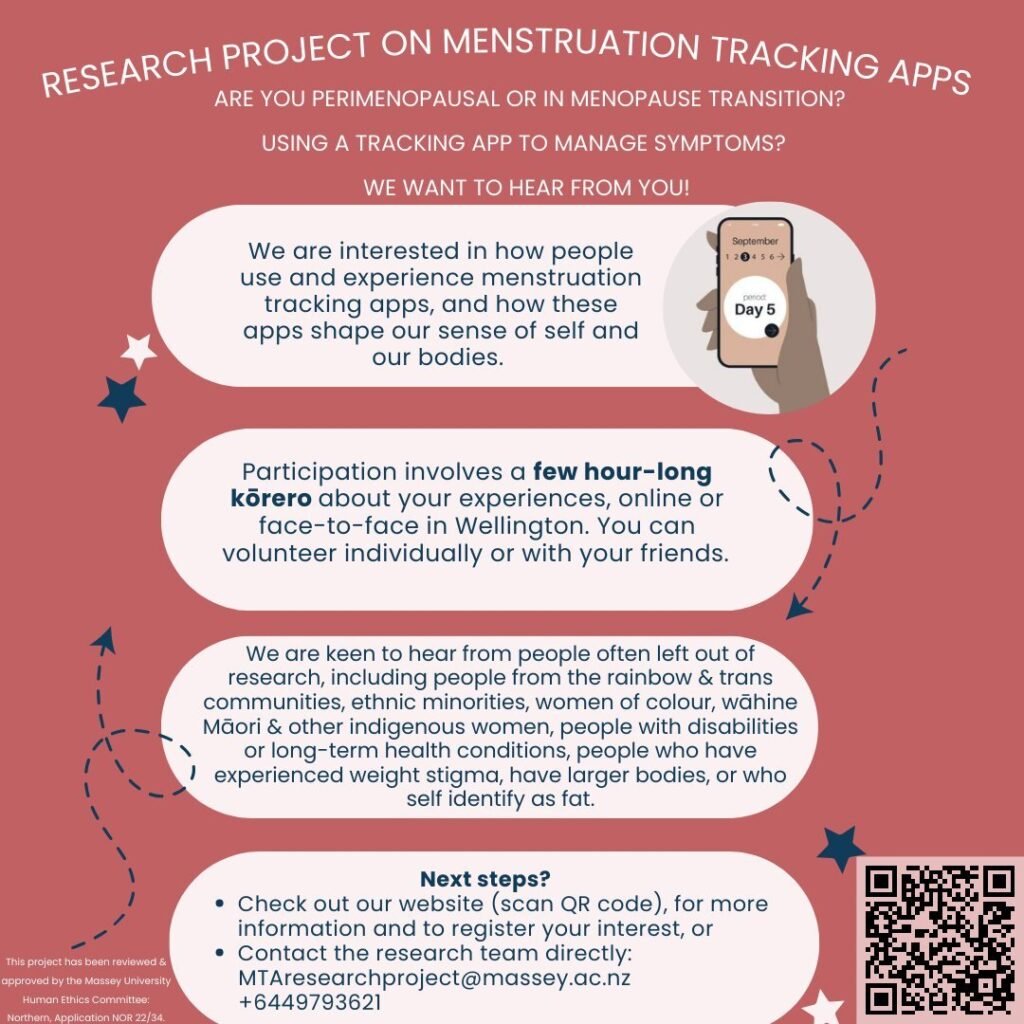
Researcher: Dr Siobhan Healy-Cullen, Massey University, Wellington
Siobhan is working on a research project looking at people’s experiences of using menstruation tracking apps (also known as period or fertility tracking apps). 500 million people worldwide use these apps, but we know little about how users experience them. And even less on user experiences of people who are:
We are hoping to speak with people from these three life stages, and also those who are often left out of research, including:
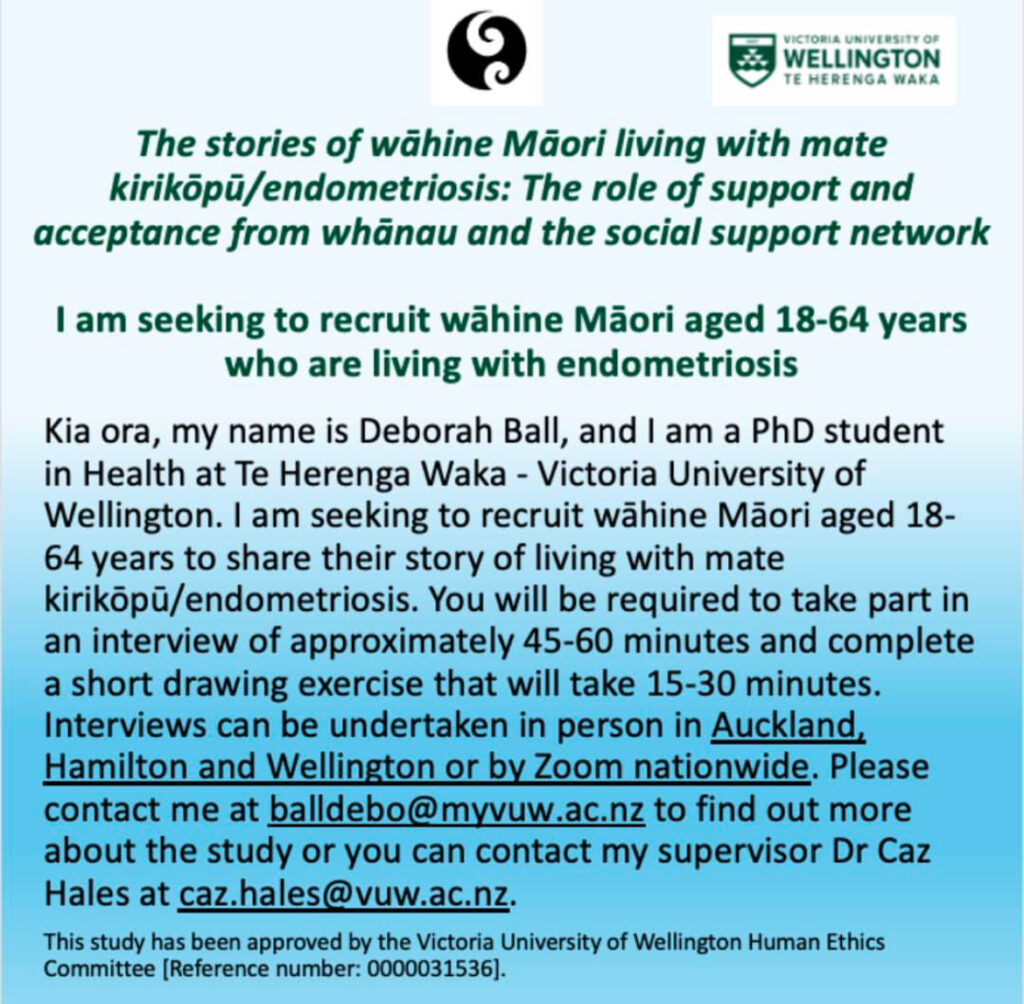
Researcher: Deborah Ball, Victoria University of Wellington
Deborah Ball, a PhD student at Te Herenga Waka – Victoria University of Wellington, is seeking wāhine Māori aged 18-64 to share their experience of living with mate kirikōpū/endometriosis. Interviews can be conducted in person (Auckland, Hamilton, Wellington) or via Zoom nationwide.
Find out more information or register for this study by contacting Deborah at balldebo@myvuw.ac.nz.
Ethics approval: Victoria University of Wellington Human Ethics Committee [Reference number: 0000031536].
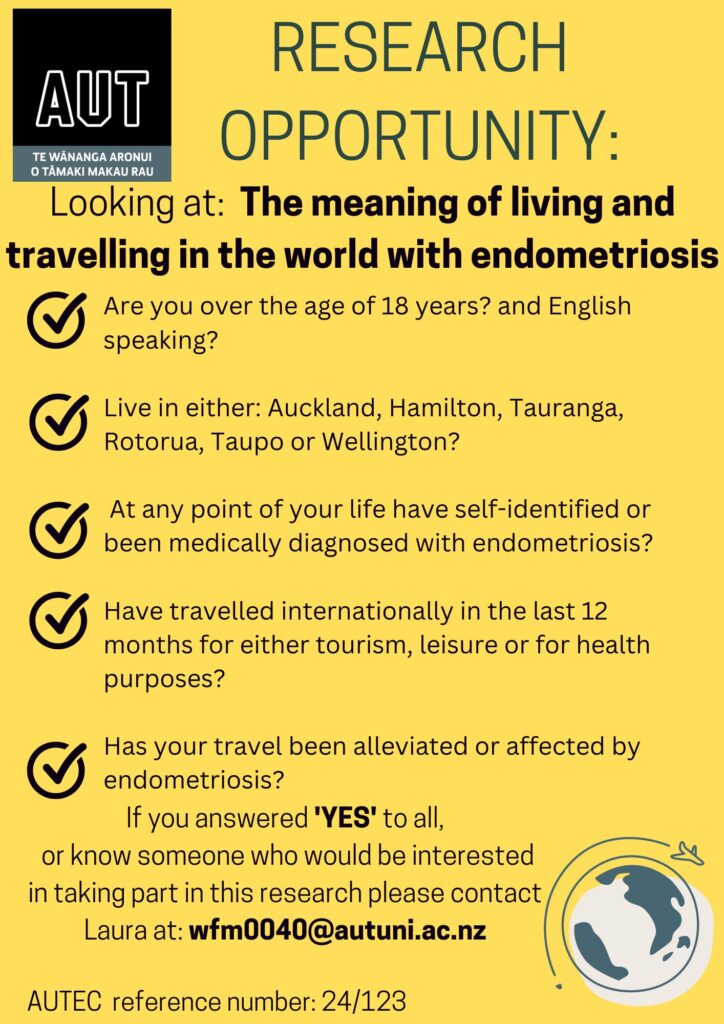
Researcher: Laura Upson, Auckland University of Technology
Are you:
If you answered ‘YES’ to the above, you are invited to participate in Laura’s PhD doctoral research! Please contact Laura on: wfm0040@autuni.ac.nz for more information.